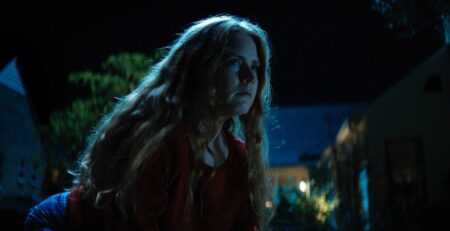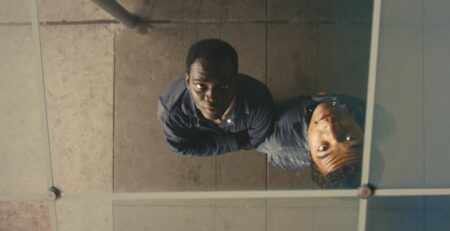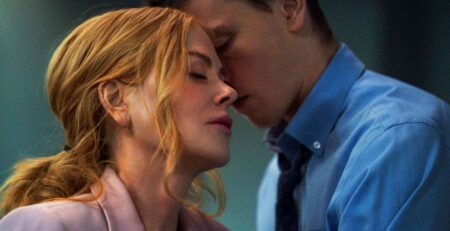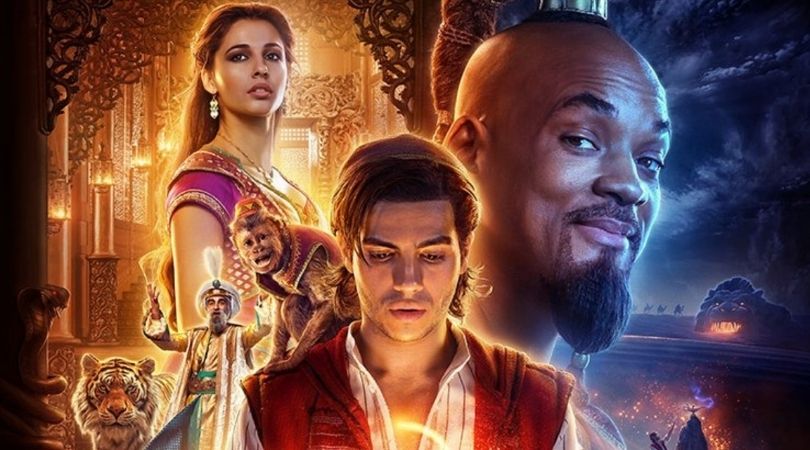
The original Aladdin, was a tale of a loveable street rat, the princess of her kingdom, and a Genie who all want to be free. The movie was directed by Ron Clements and John Musker and holds a special place in the hearts of Middle Eastern and North African (MENA) kids and adults. It was the first time we saw ourselves positively represented. The new version is directed by Guy Ritchie and stars Mena Massoud, Naomi Scott, Will Smith, Marwan Kenzari, and other Middle Eastern actors. While it is great to see Middle Eastern people on screen, the new version could have done better to present an authentic Arab or Middle Eastern experience to audiences. That combined with the lack of other uninspired elements keeps the new Aladdin from achieving all its potential greatness.
As defined by its coiner Edward Said, Orientalism is the overall Western lens that views Eastern cultures and societies as “exotic, primitive, and inferior.” It is the fundamental baseline for misunderstanding and misinterpreting Middle Eastern, North African, and Asian cultures which sees the cultures often being mixed and misattributed through different aspects to different cultures. The idea makes them a nebulous “Orient” that is essentially the same and inferior to the West. It is an arrogant but pervasive force in Western culture, often deluding storytellers into thinking they can tell our stories. Quite unfortunately, Orientalism covers much of this film.
It was painfully clear that this film would have come together as a collective whole if it had an Arab director and Arab creatives. The filmmakers attempted to disguise Orientalism as a “celebration” of diversity by making Agrabah a port city with cultures from all over the region. This was clearly an excuse for their negligence to incorporate Middle Eastern and Arab voices. In reality, all they did was Orientalist: mixing and mismatching cultures across the Middle East, North Africa, and India. The only requirement for extras was that they not be white. Brown people are not a monolith. We are diverse and distinct cultures.
While authentic Arab clothing, music, and even writing are present, they are mismatched with various Indian elements. For example, there is a dance number that has authentic Arab music but is choreographed with Bollywood dancing. This movie clearly takes place in Arabia, so why don’t they dance a traditional Arabic dance? This caused palpable confusion in my audience, and likely will in many audiences that know better.
In 2019, we should not be mixing and mismatching different cultures. This is demeaning and frankly insulting. It’s one thing to have Middle Eastern people on the screen, which is very welcome, but another to have them actually create the story. Overall, the film could have done much better to feel authentic. Disney willingly failed to have Arab and Middle Eastern voices involved, and it shows.
While the film is problematic, it is still beautiful and lavish. The costumes and set designs are gorgeous, and Agrabah feels like an expansive and beautiful setting.
However, the film is missing a sense of wonder and fun, especially with some of its side characters. The Cave of Wonders, for example, had barely any wonder. Aladdin and Abu simply went in, met Carpet, and got the lamp. Carpet, who had so much character in the original, is simply introduced without much personality and serves only as transportation. While we get some of spunky Abu we knew from the original, he is less of an active participant here. Rajah, however, retains his trademark sass. While there are great moments of magic from Genie, he feels more grounded. In some ways, this is welcome but also contributes to the film’s lack of mystery and wonder.
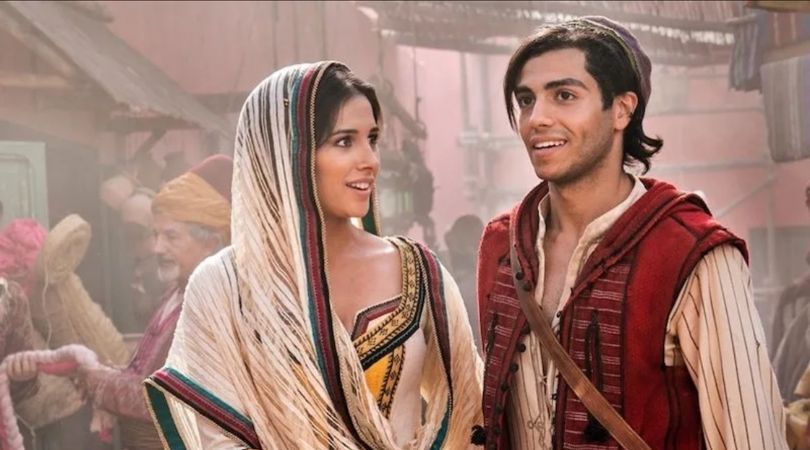
The musical scenes, like in many Disney live-action retellings, are hit or miss. The musical direction was adequate but did not reach the soaring heights you would expect it to. The singers with the consistently best musical sequences are Naomi Scott and Will Smith who fully inhabit their roles. “A Whole New World,” unfortunately, did not land for me as I wanted it to. This could change when I watch the film again, but honestly, it felt just “good” and not as great as it should be. The standout iconic song, that has one of the best-animated sequences in history, felt as though it was there simply because it had to be, without the energy and natural buildup. This is despite Aladdin and Jasmine having an overall great romance and natural chemistry.
Overall Guy Ritchie was the wrong director for this film, and the mixed bag of musical sequences is a key reason why. Very often throughout the film, I felt as though it would have benefited from having a different director who is both Arab and skilled at musical, energetic, and lavish sequences. On the whole, it was a painfully missed opportunity that shows.
But what made this film work are the strong characters, their individual dynamics, and action scenes that Ritchie is actually skilled at directing. Massoud is wonderful and charming as Aladdin. His interactions with Jasmine, Genie, and (surprisingly) Jafar are full of great drama and entertainment. In particular, Aladdin and Genie’s friendship is hilarious and heartfelt, with extra dialogue and scenes to expand on their relationship. His relationship with Jasmine doesn’t capture quite the same spark as the original does and is not as riveting, but they are given ample more time to develop their dynamic.
Aladdin gives us more time with Aladdin, letting us understand and feel the burden of the classism he has to deal with, and why he seeks a better life with Jasmine. Unfortunately, Massoud could have used better direction. While we feel for him, he is also not as emotive and energetic as he should be. There are scenes in which he appears bored when he should be full of life and energy. We do get to see him have energetic moments, but they are few and far between. Ultimately, it’s a case of Ritchie not knowing how to direct Mena to his full potential as Aladdin. Despite that, he is overall a fun, engaging, and loveable street rat you root for to succeed.
The real star of the show is Scott’s Jasmine. The character’s independence and a strong sense of self have always made her iconic and those elements expand here. While I have issues with her casting since she is not Arab, Scott makes an amazing, driven, and wonderful Princess Jasmine. She stays firmly in the spirit and expands upon the iconic character instead of “reinventing” her as many feared. Instead, she gets to build on her desire to see and engage with the world.

She’s a smart and caring politician who wants to be Sultan in hopes to create the best opportunities for her people. Her dynamic with her father is slightly different here, as it is more about her taking the reigns of Sultan rather than being forced into marriage. The Aladdin TV series had those political elements for Jasmine and it is great to see them expanded here. Those aspects, combined with her powerhouse song “Speechless” make her an absolute standout.
Overall, she might be the real star of the film. Perhaps they just should have just called this film “Jasmine.” Her new friend Dalia (Nasim Pedrad) is funny and engaging. While the animated Jasmine did not have any onscreen female friends, Dalia is a welcome addition. Unfortunately, the two do spend the broad majority of their time talking about men, spectacularly failing the Bechdel test. But Nasim does wonderfully with the material she is given and is a source of great comic relief.
Another contender of the star of the show is Will Smith as Genie. He is a wonderful delight and makes this iconic character his own for all generations to enjoy. His rendition of “Friend Like Me” might be the best musical sequence in the film. While his performance of “Prince Ali” starts off rocky and boring with autotune with a lack of splendor, it also kicks off into high gear in its second half. His and Aladdin’s relationship is one of the best, if not the best dynamic in the film.
Through their relationship, we get to learn more about Genie’s perspective on being a prisoner of his lamp. We get to feel more of his pain in regards to his situation, one that he masks with humor. When Genie is present, the film truly shines. When he is gone for most of the last part, his absence is felt. But what Will Smith does is remarkable and will leave you with a deep appreciation for his new interpretation of Genie. Having both interpretations of this wonderful and beloved character is a gift.
Meanwhile, Kenzari is menacing and devious as Jafar. He is villainous, charismatic, and even sympathetic. He starts off as threatening and remains that way for the whole film. Additionally, the script introduces a new parallel between him and Aladdin that deepens their hero-villain dynamic and makes both their arcs more compelling. You understand precisely why he wants to be Sultan, and his dynamic with Aladdin is actually key to understanding that. I won’t spoil too much here but I do think that audiences will appreciate this new aspect.
Overall, Aladdin works when it focuses on its characters. The world it builds is nice and lavish but without authentic depth. That combined with the lack of wonder and mystery keeps this from being as revolutionary as it would have liked to be. The performances and character dynamics are great and engaging but don’t fully mesh together. It was a fun and enjoyable film for what it was, but it felt as though it could have been so much more. At least we’ll always have the animated film, its sequels, and the TV series.
Aladdin
-
Rating - 7.7/107.7/10
TL;DR
Overall, Aladdin works when it focuses on its characters. The world it builds is nice and lavish but without authentic depth. That combined with the lack of wonder and mystery keeps this from being as revolutionary as it would have liked to be.


